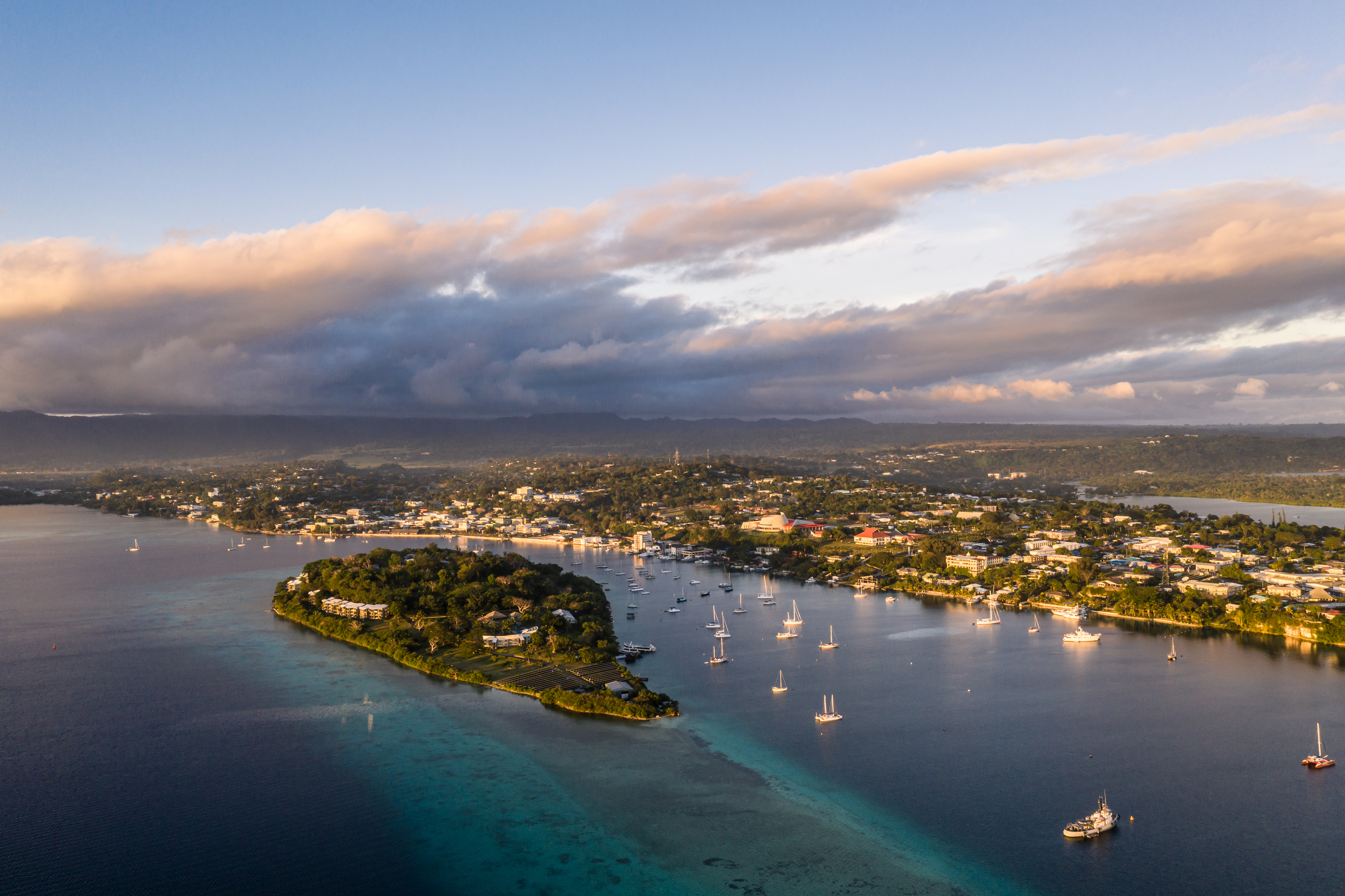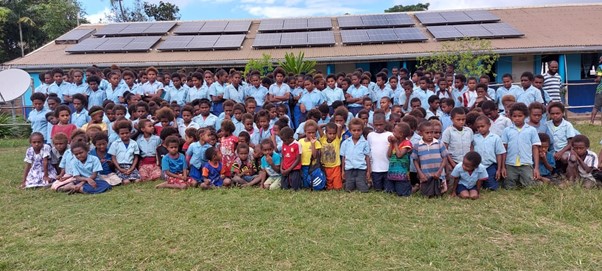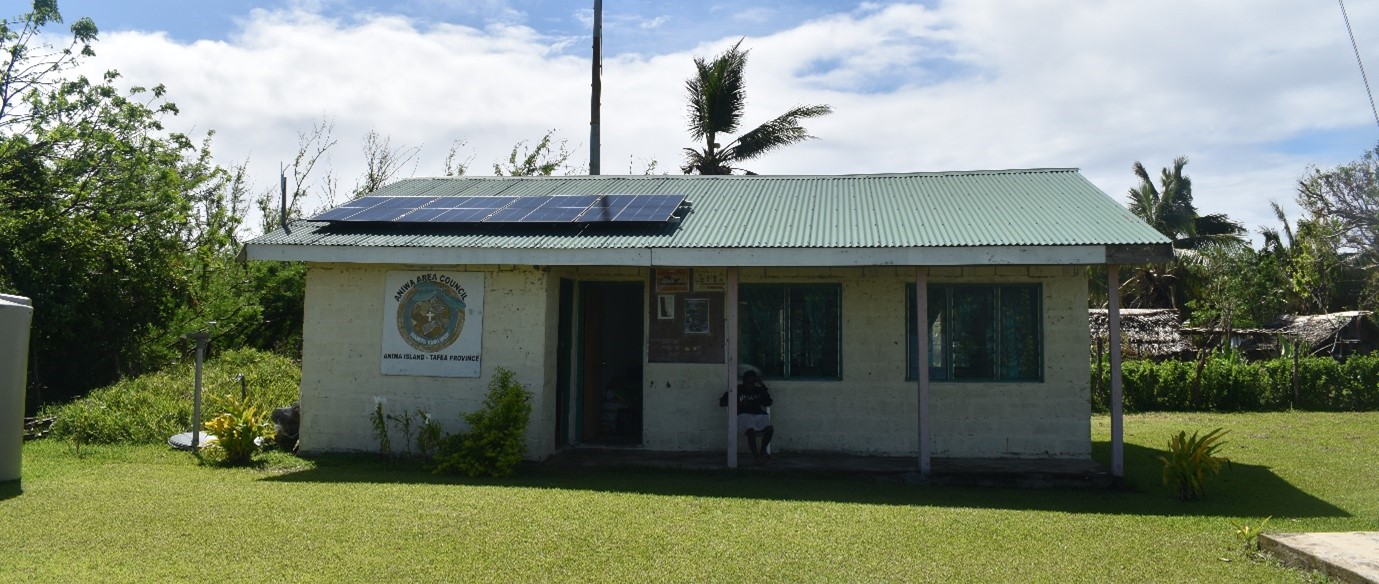How the South Pacific Island is making waves around the world with Article 6 of the Paris Agreement
Carbon, Climate, and Community: Vanuatu's Integrated Approach to Sustainable Development
June 6, 2023

Aerial view of the sunset over the Port Vila Bay and the Iririki resort island in Port Vila, Vanuatu capital city in the Pacific Ocean
Vanuatu, a captivating archipelago nestled in the South Pacific, has emerged as a beacon of sustainable development, driven by its unwavering commitment to preserving its natural resources and uplifting the lives of its people. This island nation, known for its pristine beaches, vibrant culture, and resilient communities, is harnessing the power of global carbon markets to fuel its pursuit of a sustainable future.
At the heart of Vanuatu's ambitious endeavour lies Article 6 of the Paris Declaration, a pivotal framework that enables international cooperation in addressing climate change and supporting sustainable development initiatives. Within this context, a groundbreaking partnership has flourished between Vanuatu, the Swiss Federal Office for the Environment, and the United Nations Development Programme's (UNDP) Carbon Payments for Development initiative. Together, they are leveraging the potential of carbon markets to unlock vital resources and propel Vanuatu's sustainable development journey.
Vanuatu's dedication to sustainable development is ingrained in the very fabric of its society. The nation recognizes the urgent need to mitigate the impacts of climate change, protect its fragile ecosystems, and improve the livelihoods of its people. By embracing sustainable practices, Vanuatu seeks to create a harmonious balance between economic growth, social well-being, and environmental preservation.
The significance of Article 6 of the Paris Declaration cannot be overstated in Vanuatu's path to sustainability. As a developing island nation, Vanuatu faces unique challenges in accessing financing and resources for its ambitious projects. Article 6 provides a framework for international cooperation, enabling countries like Vanuatu to access carbon markets, mobilize financial support, and attract investments that drive sustainable development efforts.
In a remarkable collaboration, Vanuatu has partnered with The Swiss Federal Office for the Environment, renowned for its expertise in environmental sustainability, and UNDP's Carbon Payments for Development initiative, a pioneering platform that channels carbon finance into sustainable projects. This tripartite alliance has created a powerful synergy, combining Vanuatu's vision, the Swiss government's commitment, and UNDP's technical expertise, to unlock the transformative potential of carbon markets for the benefit of Vanuatu's people and environment.
Article 6: opening new windows for cooperation in support of sustainable development
Alexandra Soezer, UNDP’s Global Carbon Technical Advisor and manager of the organization’s Carbon Payments for Development initiative, said International cooperation is taking center stage in the fight against climate change, with Article 6 of the Paris Agreement serving as a catalyst for sustainable development efforts worldwide. “This groundbreaking provision lays the foundation for voluntary collaboration among nations, transcending borders to address the urgent challenges posed by our changing climate,” she said. “Its potential benefits and opportunities are particularly significant for countries like Vanuatu, positioning them to thrive in a more resilient and sustainable future.”
At its core, Article 6 is built upon key principles and objectives that fuel its transformative power. It establishes cooperative approaches, inviting countries to leverage their strengths and resources for maximum impact. Emissions trading, cooperative mitigation projects, and the use of internationally transferred mitigation outcomes (ITMOs) foster efficiency, allowing nations to achieve emission reduction goals more effectively.
“The significance of Article 6 lies in its ability to foster international cooperation for sustainable development on an unprecedented scale,” says Soezer. “Through collaboration, countries can achieve their emission reduction targets more efficiently. Furthermore, this cooperation promotes knowledge sharing, technology transfer, and capacity building among nations, igniting innovation and strengthening global responses to the climate crisis.”
Vanuatu 2030
Antony Garae, Director of Vanuatu's Department of Energy, is optimistic about his country's long-term sustainable development plan, known as Vanuatu 2030: The People’s Plan. "This plan represents our overarching policy framework for building a stable, sustainable, and prosperous Vanuatu by 2030,” he said. “Our aspirations include maintaining a vibrant cultural identity and a pristine natural environment while enhancing our resilience to climate change and natural disasters."
Garae said international agreements and Article 6 partnerships are central to his Government’s low-carbon development strategy. "Article 6 of the Paris Agreement on Climate Change, alongside support from UNDP and the Swiss Government, will be instrumental in helping us achieve our goals," he said.
In a landmark move to combat climate change and foster sustainable development, the Swiss Federal Office for the Environment and the Government of Vanuatu recently greenlit the South Pacific nation's inaugural carbon reduction project. This initiative not only minimizes Vanuatu's carbon footprint but also empowers its remote communities by alleviating poverty. This groundbreaking project is among the first to leverage the potential of Article 6 of the Paris Agreement on Climate Change.
UNDP Resident Representative Dawn Del Rio said the project presents a significant step forward for the region in achieving the Sustainable Development Goals, particularly in terms of ensuring access to affordable, reliable, and modern energy for all. “UNDP is proud to support this partnership with Switzerland to electrify rural communities in Vanuatu with solar power,” she said. “By leveraging the benefits of Article 6 of the Paris Agreement on Climate Change, this project will not only bring clean and sustainable energy to those who need it the most but also contribute to reducing greenhouse gas emissions worldwide.”
Garae agrees, adding that the solar initiative is a great boon to Vanuatu, where 80 percent of rural residents lack electricity. “Solar is the best solution for these areas not only because of its obvious contributions to climate change mitigation but because fuel is costly and difficult to transport,” he said.
Vanuatu’s National Green Energy Fund
Georgewin Garae, Manager of Vanuatu's National Green Energy Fund (NGEF), proudly shares the remarkable progress achieved in the country's sustainable energy initiatives. "So far, the NGEF has financed a total of 38 solar PV systems for primary schools, 16 for secondary schools, 51 for cooperative societies, and 7 for local government offices throughout Vanuatu," he said, emphasizing the widespread impact of their efforts.
According to Garae, these solar PV systems have revolutionized the education sector. "Vanuatu schools require electricity to power lights, student accommodations, offices, and internet services," he explains. Previously reliant on imported fossil fuels, these schools now benefit from clean, sustainable energy sources, enabling extended study hours and enhancing the overall learning environment.

This solar micro-grid, installed at a boarding school on Tanna island, now powers school facilities, a community church, and a local clinic. This eco-friendly upgrade has eliminated the school's fuel dependency, allowing for significant savings that have been invested in school facilities.
The NGEF's commitment extends beyond the education sector. Garae highlights the significance of cooperative societies in Vanuatu, stating, "Electricity is required to power lights, deep freezers for meat sale, and fridges for drinks." The Fund's support has not only empowered cooperatives engaged in various activities, including fishing and operating rural butcheries but has also focused on promoting gender equality. "One of the cooperatives is owned solely by women," Garae proudly said, highlighting the positive impact of sustainable energy initiatives on empowering women entrepreneurs.
Additionally, the NGEF plays a vital role in connecting local government offices, called Area Councils, to essential services. "Electricity generated through our initiatives powers the services between the National Government and the people," he said. “By bridging this gap, the NGEF contributes to strengthening the connection and collaboration between communities and the government.”
In addition to solar PV systems, the NGEF has ventured into solar street lighting projects in the Port Vila suburb and small-scale solar water pump projects in four provinces. Garae said these projects, although smaller in scale, provide sustainable lighting solutions and address water pumping needs. “The NGEF's focus on energy efficiency is not overlooked, particularly in Efate and Santo Islands, where they actively promote and implement energy-saving measures,” he said.

The Aniwa Area Council Office on Aniwa Island celebrated the successful completion of its solar PV system in late 2022. Remarkably, the robust system withstood the force of two Category 4 cyclones in March 2023.
Switzerland: Expanding the frontiers of innovative development financing
The new possibilities in development finance in Vanuatu are made possible through a bilateral Agreement on climate change cooperation that was signed in November 2021 on the margins of the COP26 climate conference in Glasgow, Scotland. UNDP then supported Vanuatu through technical and financial capacity building as part of wider effort to expand the enabling environment for effective implementation of Article 6.
Article 6 of the Paris Agreement sets the stage for a transformative era of global collaboration, where nations join forces to tackle the climate crisis head-on. Its implementation propels sustainable development, strengthens climate resilience, and drives progress toward a more sustainable and equitable world. As the urgency to address climate change grows, Article 6 stands as a beacon of hope, inspiring collective action and paving the way toward a future of shared prosperity and enlightened environmental stewardship.

 Locations
Locations



